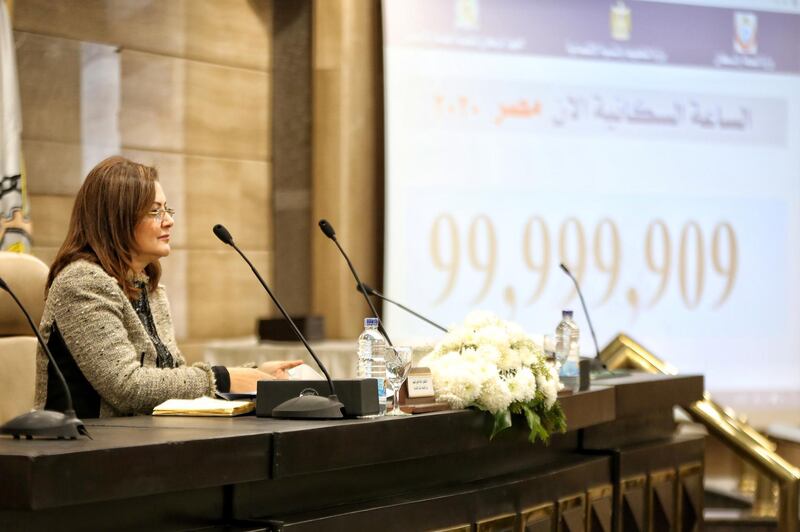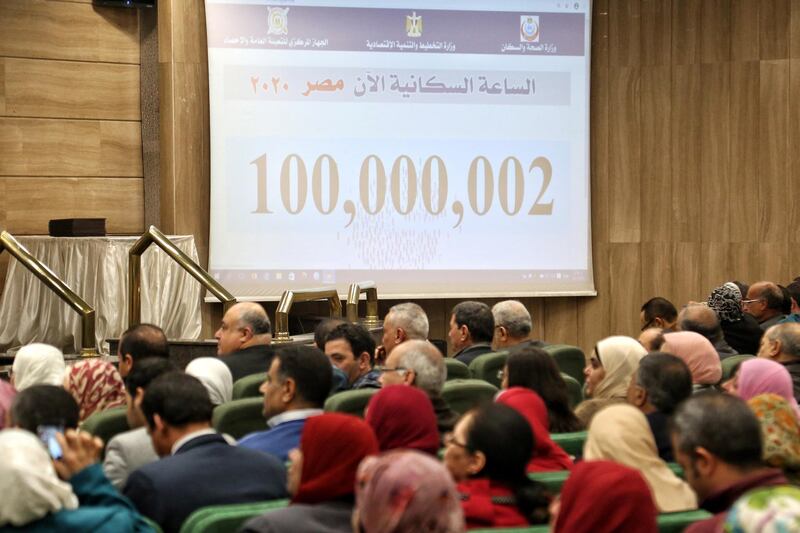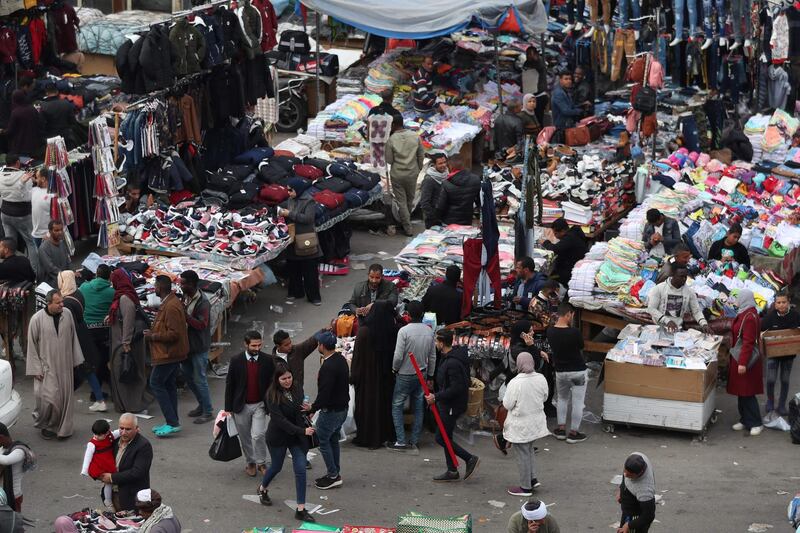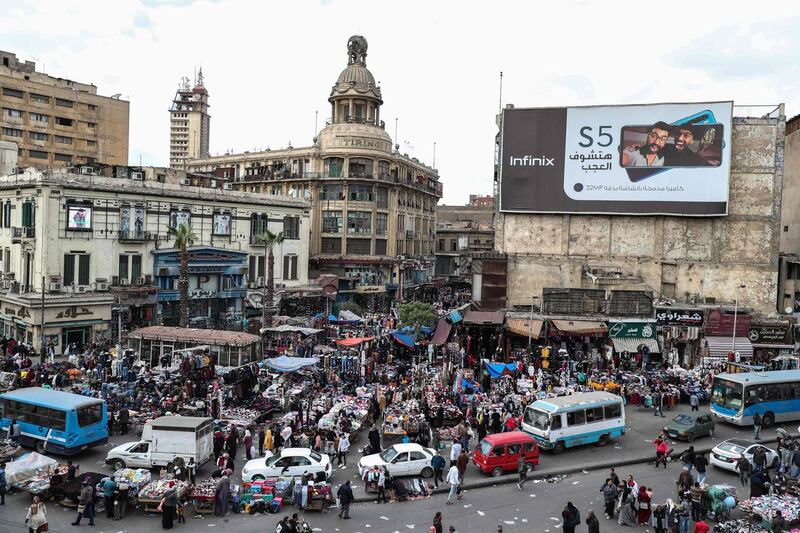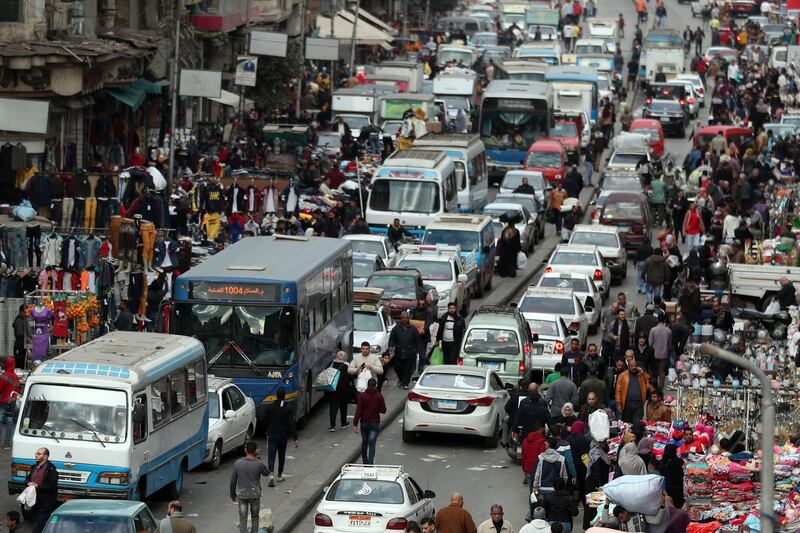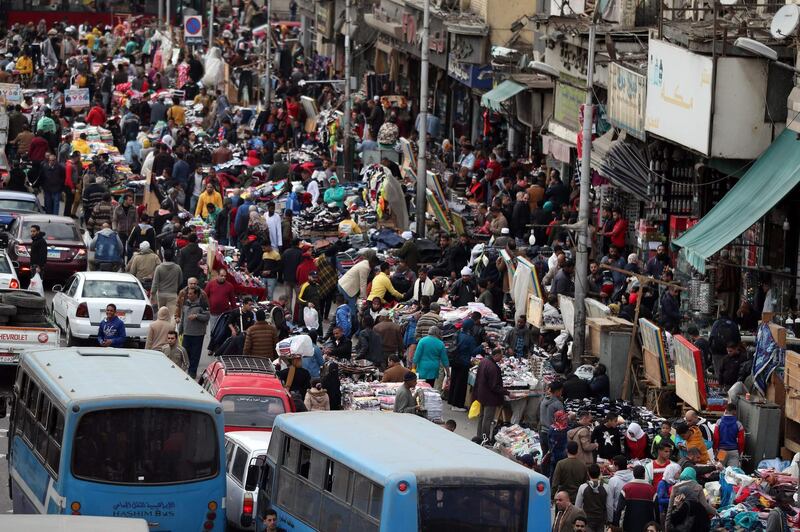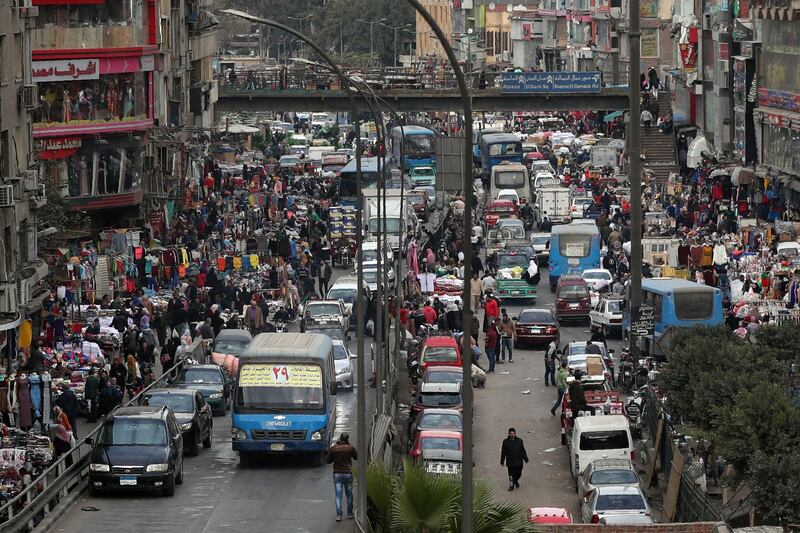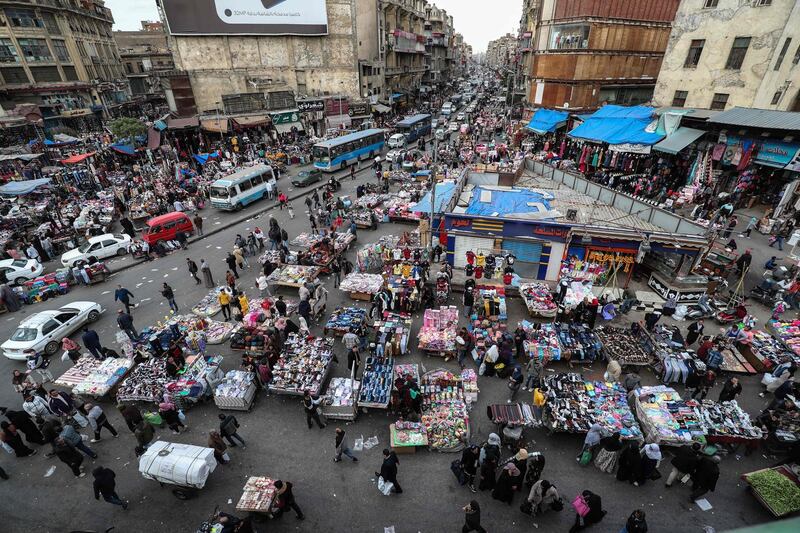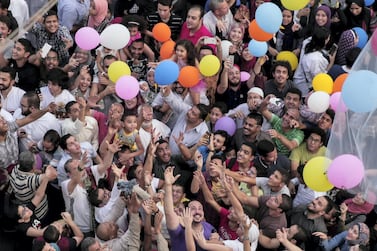Ragab Gamal’s wife is due to deliver their third child this month. Throughout her pregnancy, she had seen an obstetrician only once.
“Too expensive,” said Mr Gamal, a street sweeper who supplements his monthly 1,200-pound (Dh279) income by working as a guard at an unused apartment block in Cairo’s middle-class Abdeen district.
“The doctor’s visit cost us 150 pounds. She will deliver our baby wherever God chooses for her to do so.”
Mr Gamal, his wife and children Ziad, 6, and Gamal, 2, live in the building’s basement, in a space without doors or windows. To fend off the bitter Cairo winter, they light a fire every night.
He went to Cairo six years ago, as one of the millions of Egyptians who have migrated to big cities in search of jobs.
But in a country where an exceptionally high birth rate has for decades offset economic growth, his plans belie his social status and his conservative background in Minya, a province south of Cairo.
Like most rural citizens in Egypt, many Minyans hold to the notion that married couples can have as many children as possible in the belief that God will provide for them.
“No more,” Mr Gamal said when asked if he planned to have more children. “Three is enough.”
He is one of eight siblings whose father supported the family by doing odd jobs.
“Three are enough because my dream is to buy a home back in Minya and we are saving for that,” Mr Gamal said. “We need to have our own home there.
“When we do, I will send Umm Ziad and the children there to live. They have suffered enough with me here in Cairo.”
Mr Gamal’s reference to his wife as Umm Ziad, or “mother of Ziad”, is in keeping with the practice in rural Egypt to not give the name of an adult woman to an unrelated male.
His determination to have no more than three children would probably endear him to Egypt’s government and its President, Abdel Fattah El Sisi, who does not mince his words when talking about the most serious challenges facing his country.
“Terrorism and population growth,” said Mr El Sisi, who has been in office since 2014. “We have equated the people who try to kill us with the population growth as our main challenge.”
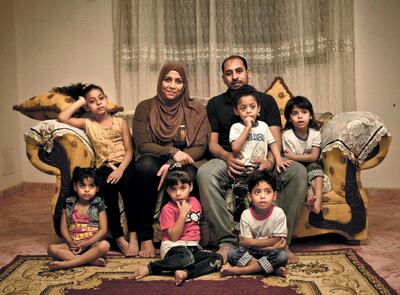
Egypt’s population hit the 100 million mark this week – a digital population counter mounted outside the State Statistics Bureau showed 99,991,439 at 10 am on Monday.
Egyptians add 2.5 million to their numbers each year.
Compounding the harm of such a high birth rate, 97 per cent of Egyptians live on less than 8 per cent of the land, and six out of every nine is under the age of 29.
Such growth adds nearly 1 million people to the workforce each year, a number that requires GDP growth of about 8 per cent to create jobs for all.
At the current rate, Egypt’s population will increase by almost 70 million in 2050.
“If you think the idea is just to feed your children, then you are improperly abbreviating the relationship between you and them,” Mr El Sisi said recently. “This is the big challenge that’s facing the future of Egypt.”
Successive governments have made curbing population growth a key objective, with varying degrees of effectiveness.
The problem has appeared again in recent years to coincide with the introduction of long-delayed and far-reaching economic reforms that have hit the middle class and poor the hardest.
Under Mr El Sisi, Egypt has embarked on an ambitious and costly drive to build new cities and upgrade infrastructure.
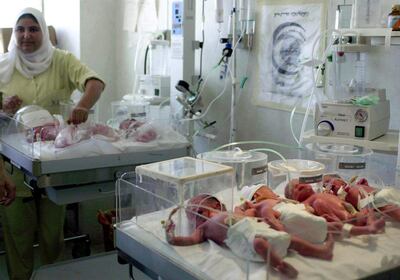
Fourteen cities are under construction, including a new capital in the desert east of Cairo where ministries, Parliament and the presidency will move by next year.
The new capital, which has yet to be named, is meant to ease the pressure on Cairo, which has a population of about 20 million.
The 13 other cities, which are spread across the mostly desert nation, are intended to ease a chronic shortage of affordable housing and absorb the population growth.
The state has long argued that such efforts, as well as job creation plans, improvements to the economy, education, health care and food production, are undermined by rapid population growth.
Dr Amr Hassan, head of the National Population Council, said the most difficult challenge the agency faced was the “mindset” of Egyptians, many of whom equate large families with a higher income.
“Changing these concepts will take time,” Dr Hassan said. “It’s a war that is fiercer than the war against terror. I call it the war of awareness.”
But the council’s campaign for a limit of two children in each family are starting to show results, he said.
“Indicators have improved over the past three years and we are still working hard,” Dr Hassan said.
“But we need to double our efforts. If we do that, then we can bring down by 50 per cent or even 75 per cent of the forecast population growth between now and 2050.”
Prominent sociologist Ammar Hassan believes the population growth is only an impediment to development because of the poor state of health and education services, which have been on a downward spiral for decades.
“It all depends on the way the population is dealt with,” Mr Hassan said. “There are countries with tiny populations and massive resources that still live in misery because of poor management.
“A potent example is Libya under the rule of Muammar Qaddafi, a corrupt and failed regime that squandered wealth.
“In contrast, there is China, which is viewed as a role model for taking advantage and putting to good use its massive population.
“Those who constantly speak about population growth as a burden tend to forget that people are the primary resource for development.”
